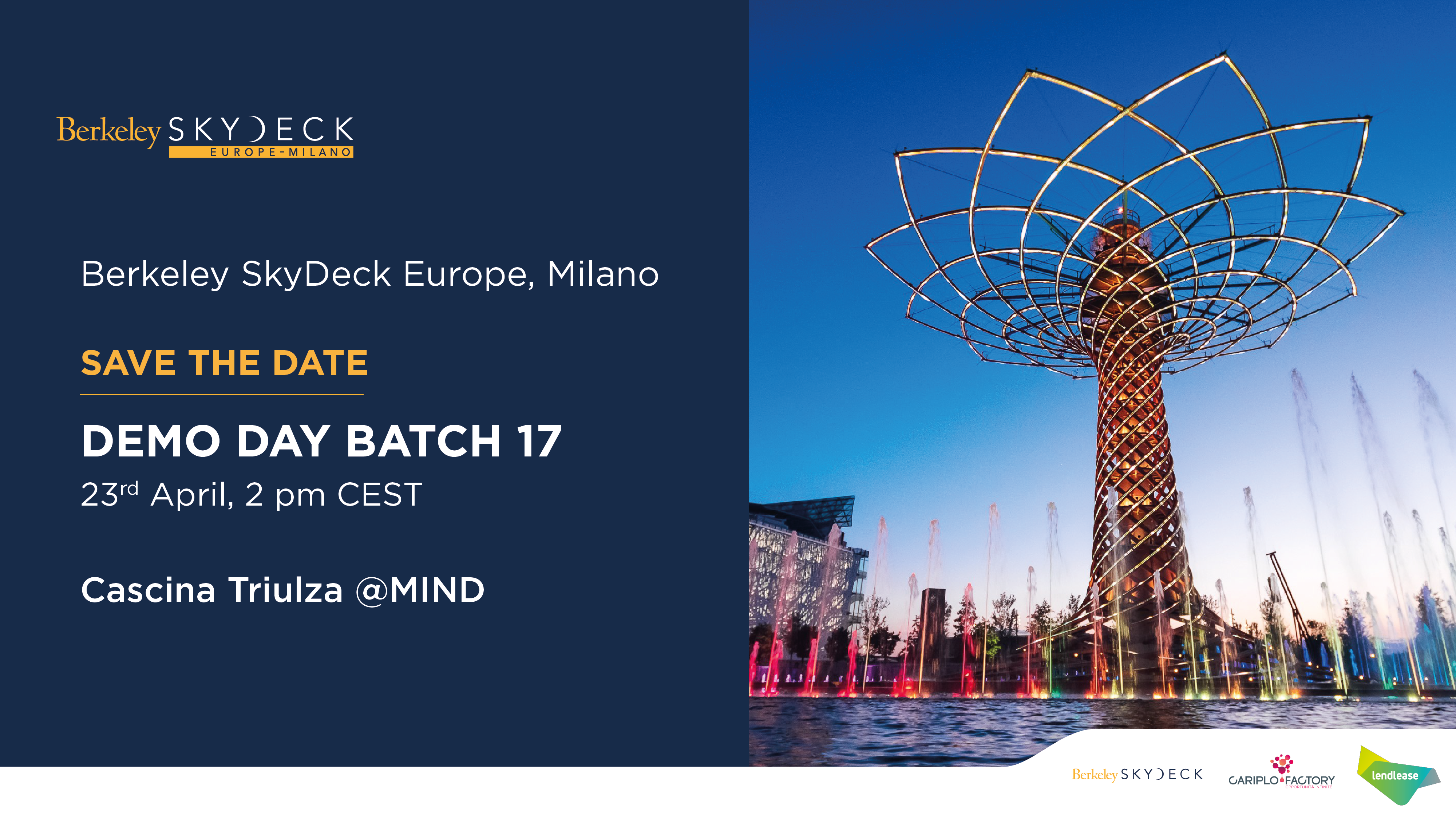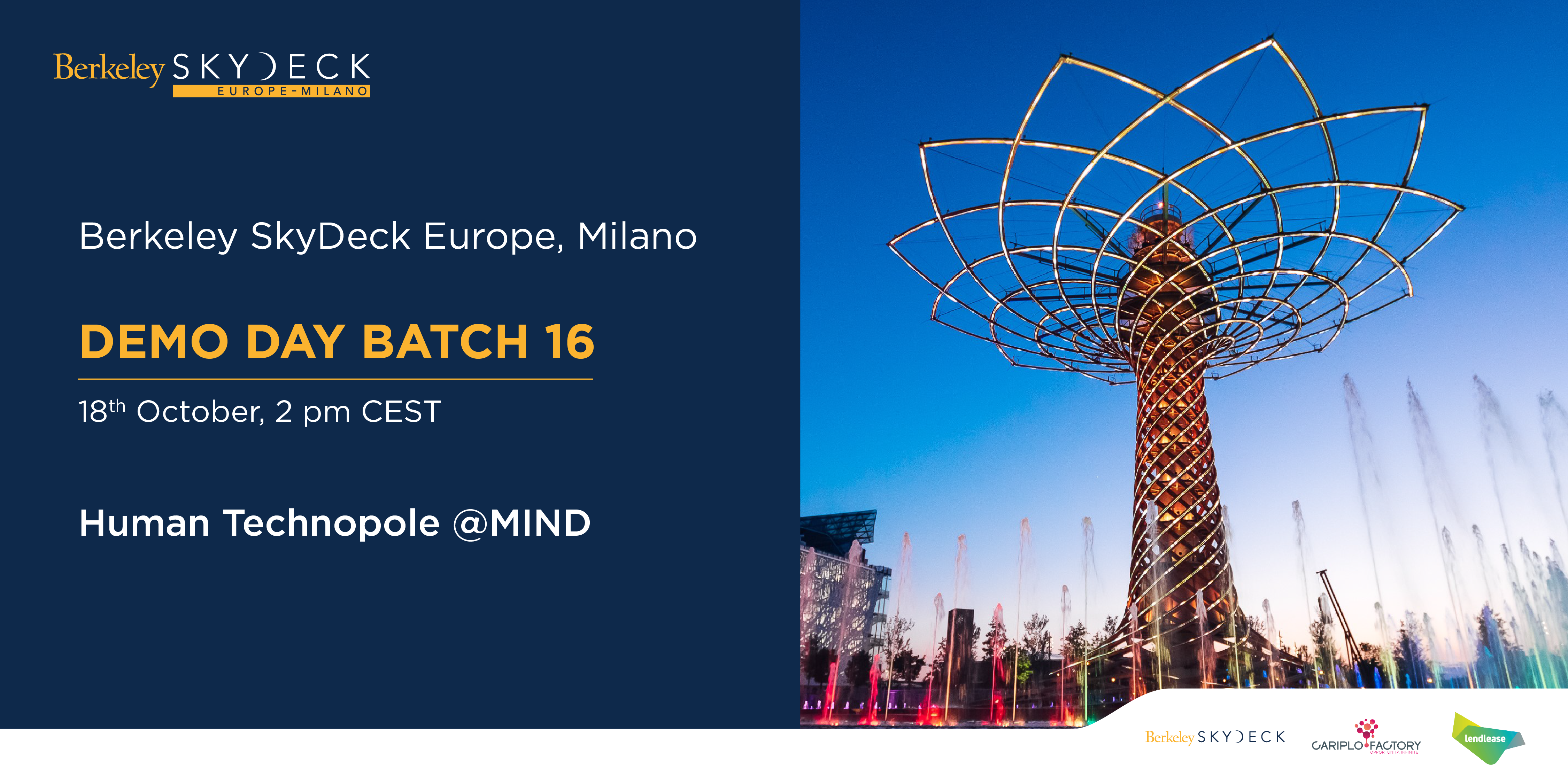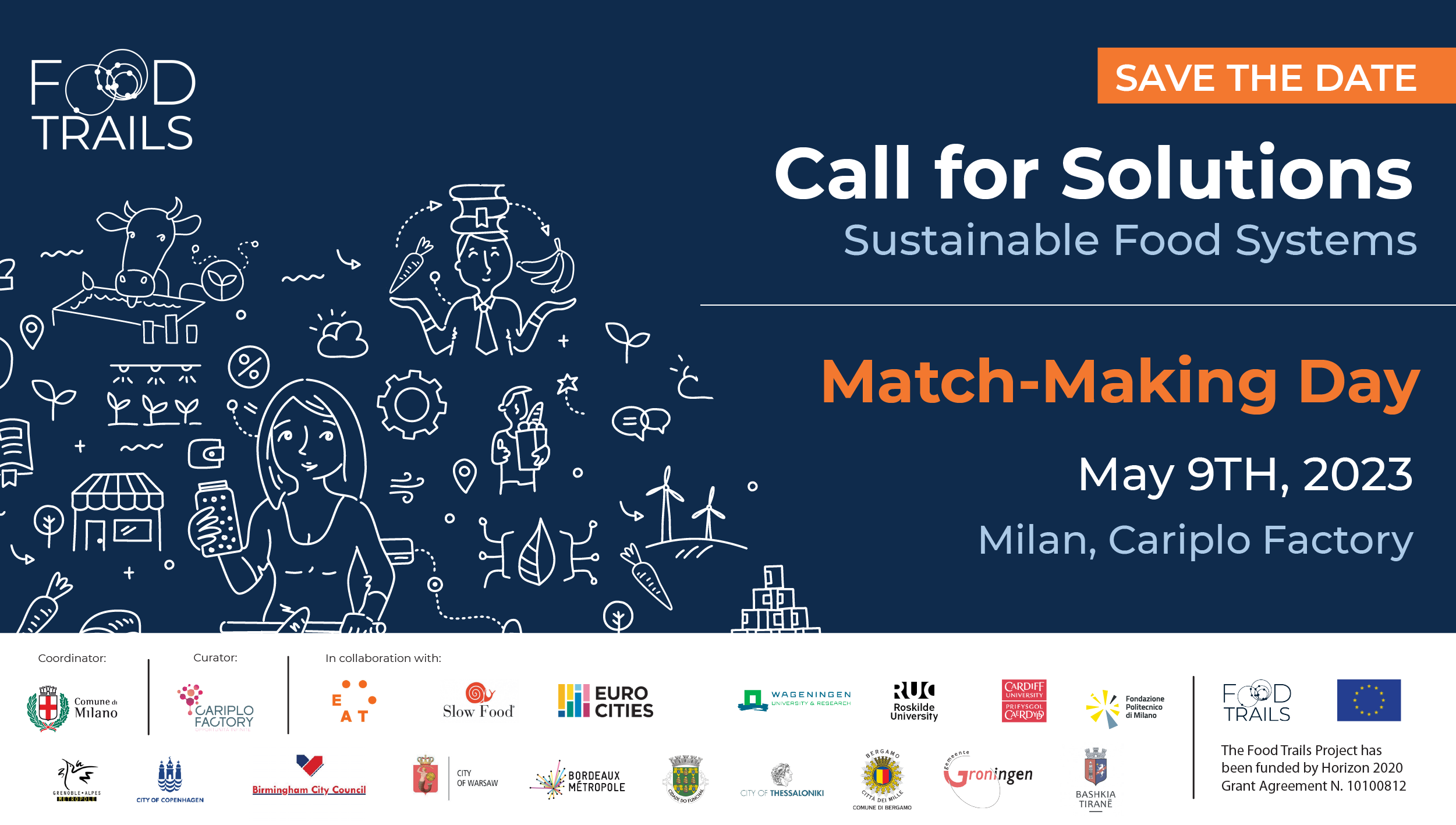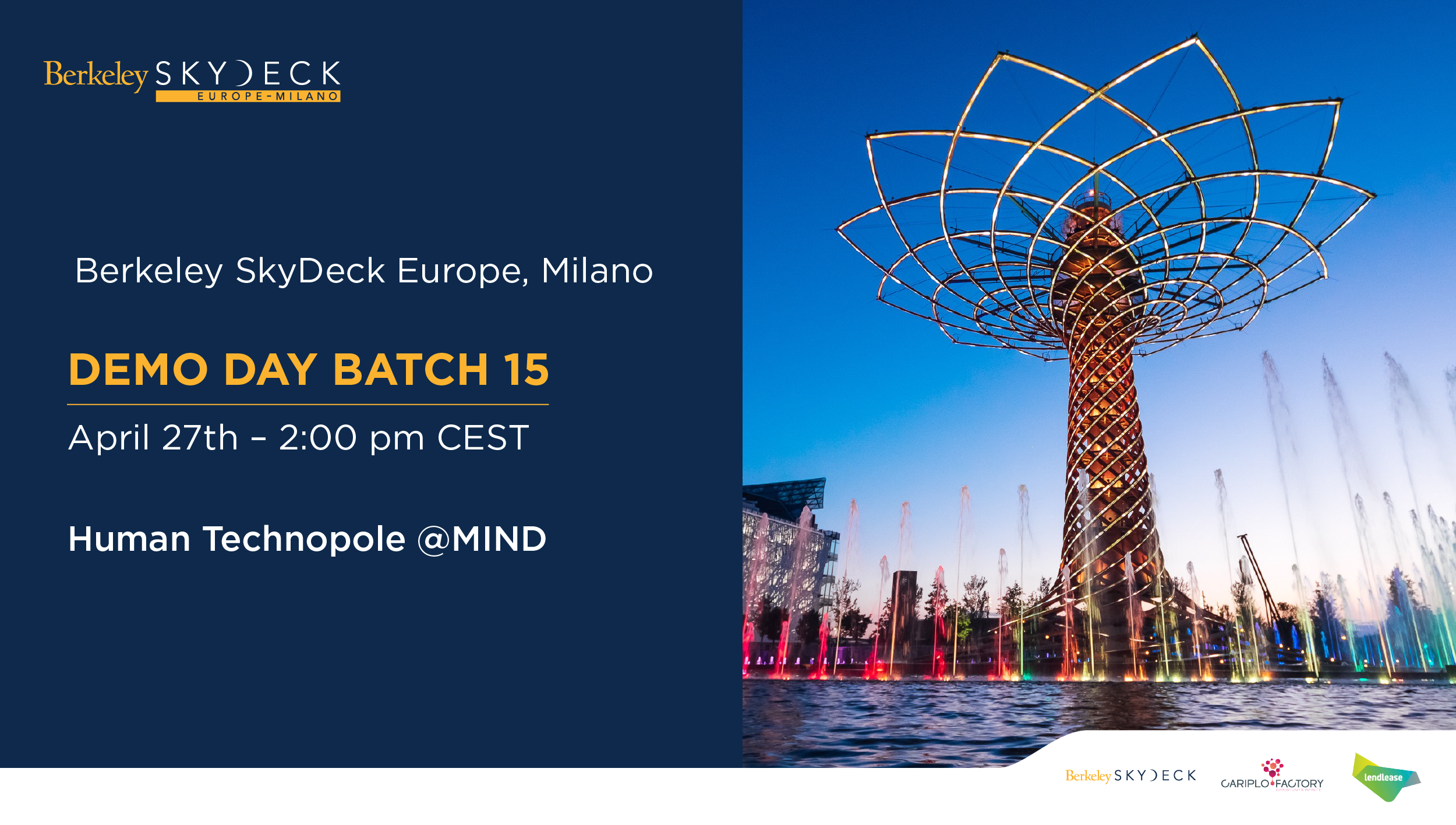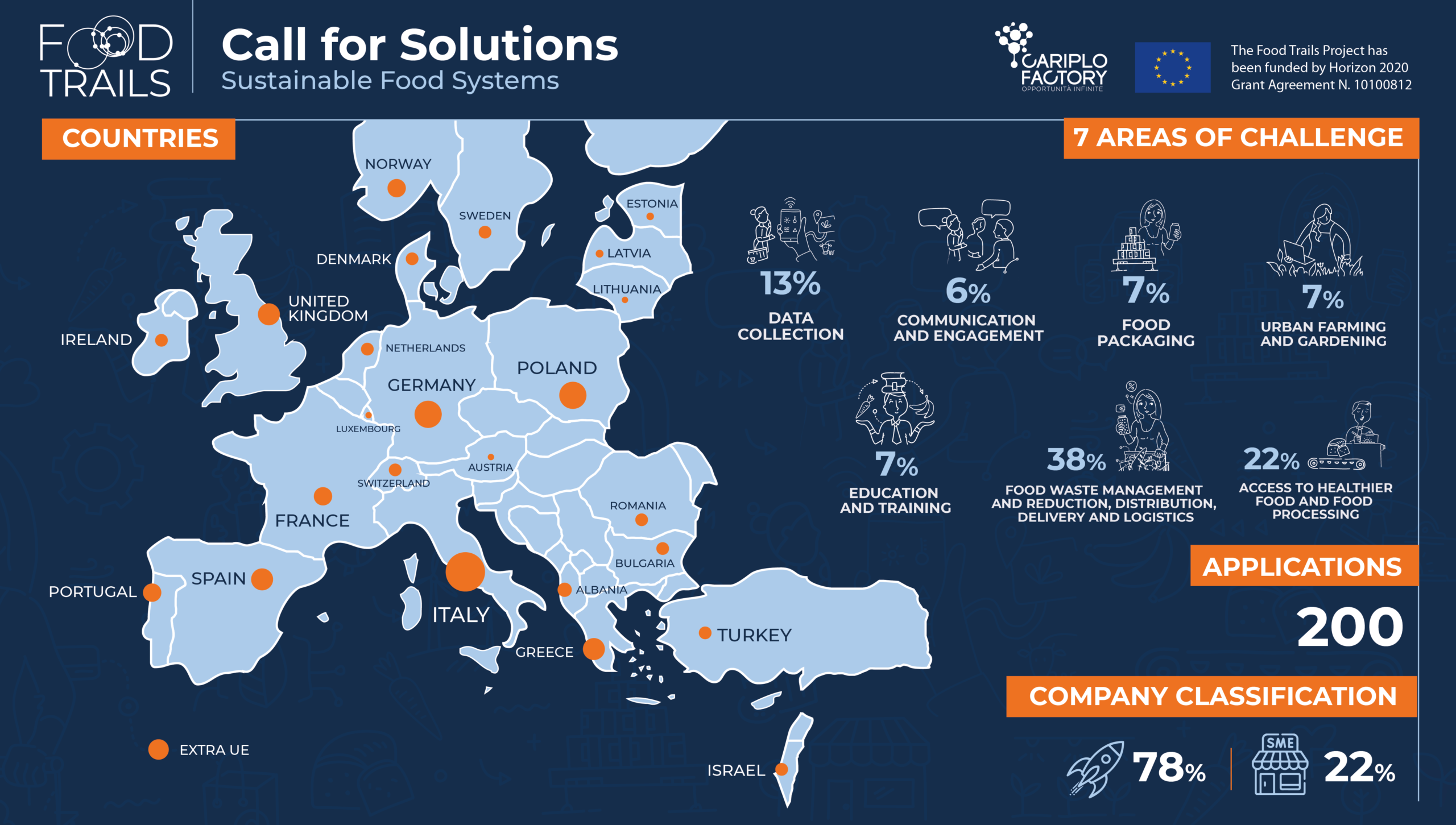Call for Solutions – Sustainable Food System
Behind the scenes of Call for Solutions – Sustainable Food Systems
 RECOMMENDED FOR People
RECOMMENDED FOR People
 RECOMMENDED FOR Startup
RECOMMENDED FOR Startup
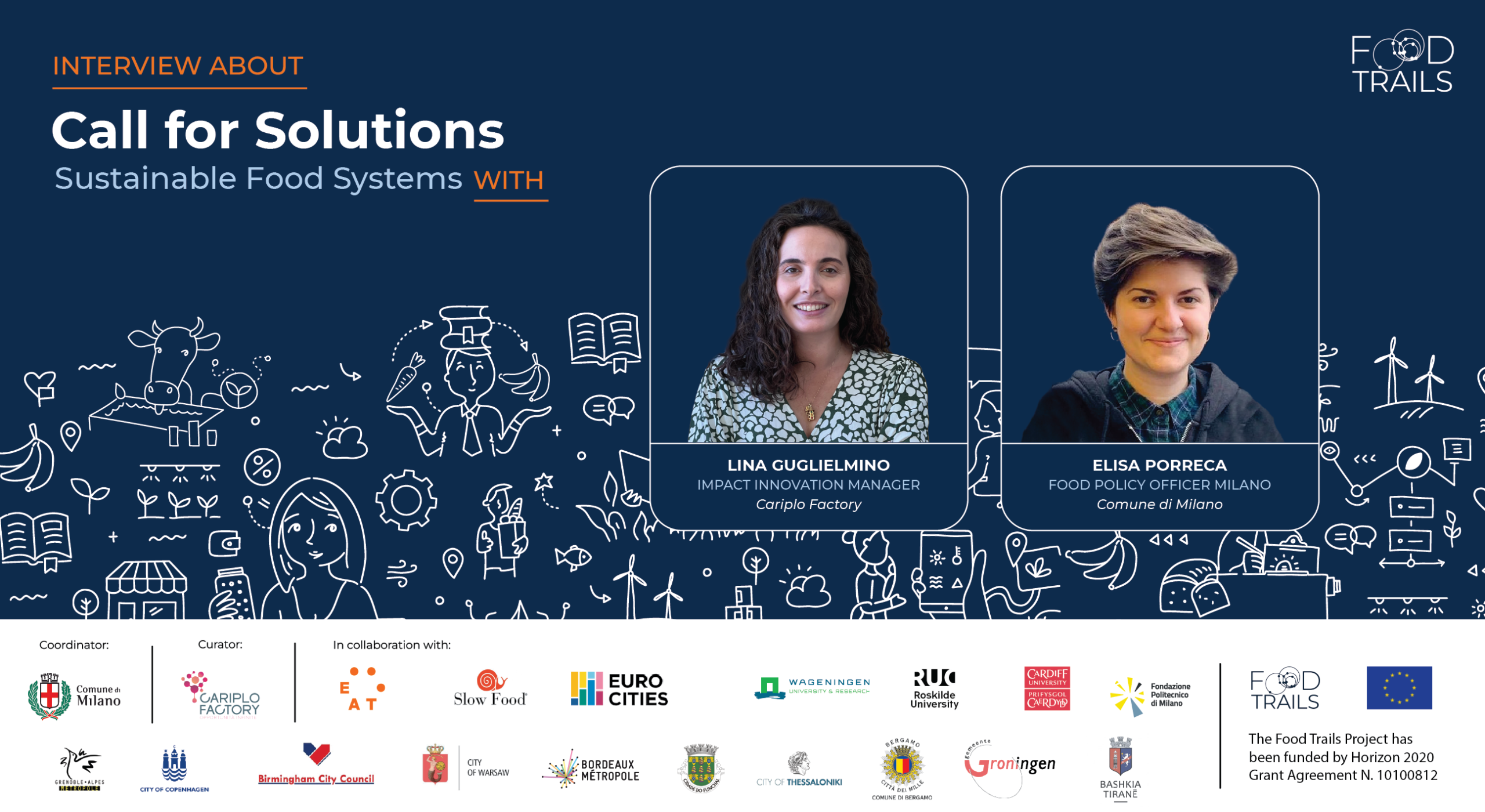
Food Trails, a four-year project launched in October 2020, aims to develop sustainable, healthy and inclusive food policies in 11 European cities: Bergamo, Birmingham, Bordeaux Metropole, Copenhagen, Funchal, Grenoble-Alpes Metropole, Groningen, Milan, Thessaloniki, Tirana and Warsaw.
Within the project – led by the Municipality of Milan in collaboration with a consortium of 19 partners – making use of the experience of the Eurocities Working Group Food and Milan Urban Food Policy Pact, the Call for Solutions – Sustainable Food Systems was developed. It aims to address 7 challenge areas identified with partner cities to translate the shared vision and joint commitment of the Milan Urban Food Policy Pact for integrated urban food policies into measurable and long-term progress towards sustainable food systems in Europe.
The floor to Elisa Porreca, Food Policy Officer Milan and Lina Guglielmino, Impact Innovation Manager at Cariplo Factory.
Elisa, tell us about the context in which the Call for Solutions – Sustainable Food Systems initiative was born.
The Call Sustainable Food Systems was born as an activity of the horizon Food Trails project. It is a 12-million-euro project that activates 19 partners across Europe constructing urban food policies in Europe, with the Municipality of Milan as coordinator. The heart of the project is to develop a systemic approach to the transformation of the food system in the 11 cities involved, developing in each of the living labs to design innovative pilot actions and at the same time define public policies that support this innovative thrust. In support of this activity, the four partner universities and other stakeholders work to model new approaches and monitor the impact of Food Trails‘ actions.
The project also plans to connect private sector realities to the work of cities to build these solid and ambitious results. This is where the activity of the Call for Solutions – Sustainable Food Systems fits in. The objective of the call is to provide concrete answers to the innovation needs of public bodies by connecting them with the world of startups and small and medium-sized enterprises engaged in the development of solutions for sustainable food systems.
Lina, tell us about the seven challenge areas. How were they identified, and what relevant impacts for cities do they have?
The seven different areas of challenge are focused on the priorities identified by the 11 project’s Cities for the development and implementation of the Food Policies: Education and training, Communication and engagement, Food waste management and reduction, distribution, delivery and logistics, Data collection, Access to healthier food and food processing, Urban farming and gardening and Food packaging. The challenges identification was a long process characterized by One-to-One interactions with the projects’ Cities to analyze the core activities of the Living Labs that the cities are implementing and the desirable impacts. SMEs and start-ups can give added value to activities by amplifying results and impacts. Public-private collaborations can be the key to concrete and long-term social innovation and good practices that can effectively transform the European food system.
Elisa, a network of 11 European cities with different needs, organizations, and cultures. What do they have in common in this project, and what best practices are they trying to implement?
What unites the partner cities of Food Trails is the concrete commitment to promoting sustainable food systems, for example through the promotion of eco-sustainable diets and the consumption of food with low environmental impact, the improvement of the accessibility of healthy foods for all, through the redefinition of school meals and food aid programs, and the strengthening of the local food system. To do this, the 11 Food Trails cities choose first of all to adopt a systemic and integrated approach; publicly commit to the transition to sustainable food systems by joining the international community of the Milan Urban Food Policy Pact (MUFP), the agreement open to cities around the world for the development of local and sustainable food systems; and participate in European projects, such as Food Trails, sharing know-how and best practices on urban food policies with other cities in Europe, to achieve their sustainability goals. To learn about the best practices that the Food Trails cities are implementing, you can visit the dedicated area of the Food Trails website.
Lina, the Call for Solutions – Sustainable Food Systems is supported by several partners. What is their active role, and what value do they contribute to generating?
The Call for Solutions is the result of the collaboration between various project partners, where naturally, the role of Cariplo Factory and the experience of open innovation and the connection of startups and companies is strategic. Wageningen Economics & Research will be involved in the submissions evaluation group, with their focus on innovations in the field of food economics and the Municipality of Milan, which will contribute with its point of view as coordinator and as a local body engaged in the development of food policy actions. The cities of the project will then decide who are the subjects with whom to carry out collaborations.
Elisa, on November 9th and 10th, the Food Trail Team and the Cariplo Factory Impact Team flew to Thessaloniki for the Food Trails Annual Partner Meeting event.
Tell us about these working days and why they played an important role in the initiative.
The Food Trails Annual Partner Meeting is a very important periodic meeting that brings together all project partners. The Thessaloniki annual meeting was the first one in person after Covid-19. We enjoyed three intense days that allowed us to take stock of the activities carried out and discuss strategic actions to be developed in synergy in the next months. The occasion was also an opportunity to visit the pilot projects of the Municipality of Thessaloniki in the field of sustainable food and agriculture. The visits were proof of how collaborations between the public (in this case, the Municipality) and private actors are already yielding great results both for those directly involved and for the community living there. Results are in terms of profits, collaboration, and last but not least, in terms of social and environmental impact.
Lina, draw us the identikit of the innovative startups and SMEs you are looking for in Europe, and what prospects can be reserved for them by applying to the initiative.
The call seeks the most innovative European start-ups and Small-Medium Enterprises (SMEs) that can develop strategic services and solutions related to the seven different areas of challenge to transform the European food system for a sustainable future. The European selection “Match Making Day” event will allow presenting start-ups / SMEs’ solutions to the 11 Cities and other stakeholders such as investors, Cities’ partners, and high-level representatives of the EU food system policy and innovation landscape. The start-ups / SMEs selected at the end of the “Match Making Day” will gain priority in terms of collaboration with Food Trails Cities and their partners for the development of Living Labs, establish strategic alliances with one or more Cities, and the possibility to collaborate with their strategic partners such as the European Commission. All start-ups / SMEs participating in the “Match Making Day” will be included within the startup portfolio on the initiative website as the best companies that can support the implementation of a sustainable food system. The promoters of the initiative will also create social content on the major social platforms. Editorial content will be produced for the start-ups / SMEs that will be selected at the end of the “Match Making Day.”
Elisa and Lina, thank you for accompanying us in this story to discover the Call for Solutions – Sustainable Food Systems initiative. Before leaving us, we ask you to give us four good reasons why interested parties should apply to the initiative:
- Have the opportunity to develop a pilot project within the Food Trails initiative, in collaboration with the 11 partner cities;
- Gain international exposure;
- Become part of the most important network of cities and food stakeholders in Europe;
- Participate in an experimental project, characterized by a collaboration between the public and private sectors.
Startups and SMEs interested in participating in the Call for Solutions – Sustainable Food Systems initiative can send their application by 16 February 2023, using the official form.
Within the initiative, the selected startups will have the opportunity to meet representatives of the cities of the Food Trails project, potential investors, and relevant stakeholders of the European food system and the innovation landscape.
Furthermore, the finalists will have the opportunity to launch a pilot project as part of the Food Trails initiative, generating international exchange and opportunity for visibility, and become part of the most important network of cities and stakeholders dedicated to food issues in Europe.
For more details on the Call for Solutions – Sustainable Food Systems initiative, consult the official page.



